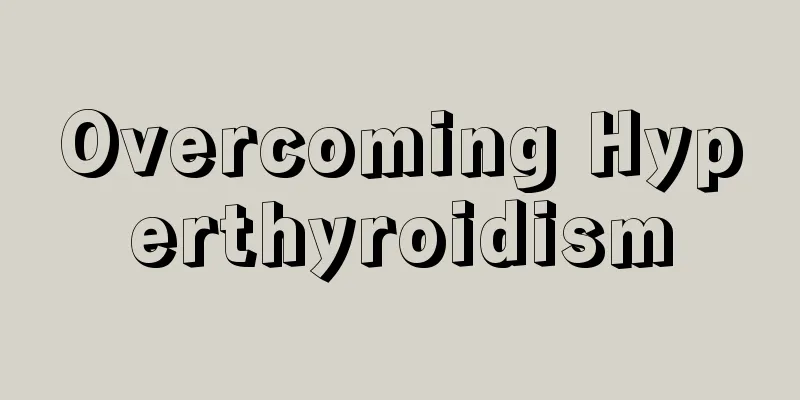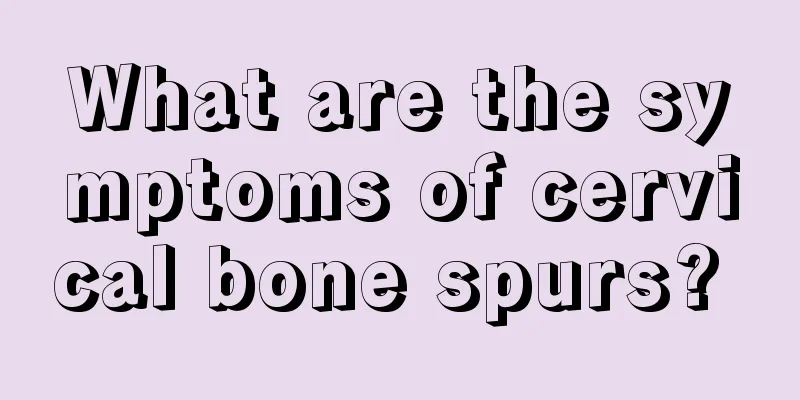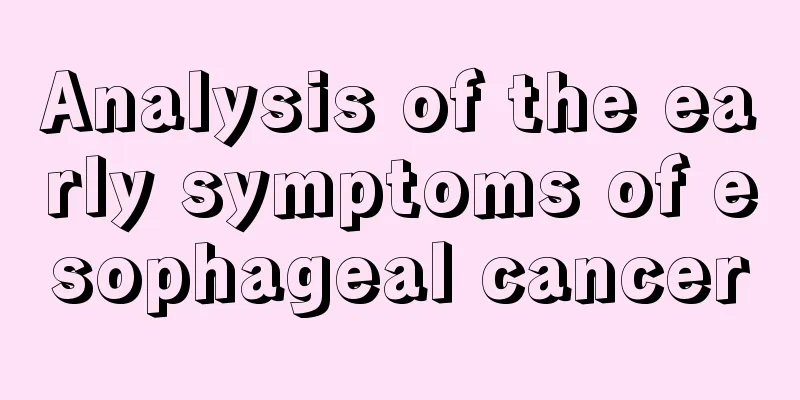Overcoming Hyperthyroidism

|
In fact, hyperthyroidism is a very common disease. There is no need to worry after suffering from this disease. Because current medical technology can completely cure this disease. However, the choice of treatment method is very important for different patients with hyperthyroidism. How to overcome hyperthyroidism, let us introduce to you below. Hyperthyroidism is a condition in which the thyroid gland itself overfunctions and the synthesis and secretion of thyroid hormones increase, leading to thyrotoxicosis. The main causes include: Graves' disease, multinodular goiter with hyperthyroidism, autonomous hyperfunctioning thyroid adenoma, iodine-induced hyperthyroidism, and pituitary hyperthyroidism, among which Graves' disease accounts for about 85%. 1. Symptoms of hyperthyroidism: The main clinical symptoms of hyperthyroidism are: irritability, restlessness, insomnia, palpitations, fatigue, heat intolerance, sweating, weight loss, increased frequency of bowel movements, infrequent menstruation, periodic paralysis or proximal muscle weakness and atrophy, etc. Signs of hyperthyroidism: Most patients with Graves' disease have a diffusely enlarged thyroid gland with a medium texture (it may be tough in patients with a long course of illness or who have consumed a lot of iodine-containing foods), no tenderness, tremors when touched, and vascular bruits when asked. Nodular goiter with hyperthyroidism may cause palpable nodular enlargement of the thyroid gland. Cardiovascular: increased heart rate, arrhythmia, atrial fibrillation, increased pulse pressure, etc. Lower extremity edema (pretibial myxedema) and exophthalmos. 2. Diagnosis of hyperthyroidism: increased FT4, FT3, TT4 and TT3, decreased TSH (less than 0.1mIU/L); goiter or thyroid nodules; symptoms and signs of hypermetabolic disease. 3. Treatment of hyperthyroidism includes paying attention, supplementing with adequate calories and nutrition, etc. There are three types of treatment for hyperthyroidism: antithyroid drugs, iodine-131 therapy, and subtotal thyroidectomy. (1) Antithyroid drugs retain the thyroid gland's ability to produce hormones, but they have a long course of treatment, a low cure rate, and a high recurrence rate. Iodine-131 and subtotal thyroidectomy both reduce the synthesis and secretion of thyroid hormones by destroying thyroid tissue. They have a short course of treatment, a high cure rate, and a low recurrence rate, but the incidence of hypothyroidism is very high. Antithyroid drugs include methimazole and propylthiouracil. The drug dosage is adjusted according to the thyroid hormone level and is generally used for about 1.5 years. Indications: patients with mild disease, moderate thyroid enlargement, under 20 years old, hyperthyroidism during pregnancy, the elderly and frail, or those with severe heart, liver, and kidney diseases who cannot undergo surgery. Those whose thyroid gland is significantly reduced or whose TRAb (thyroid-stimulating hormone receptor antibody) is latent when the medication is stopped are less likely to relapse; those whose thyroid gland is still enlarged or TRAb is positive when the medication is stopped have a high recurrence rate, which usually occurs within 3-6 months of stopping the medication. (2) Advantages of iodine-131 treatment: The method is safe and simple, low cost and highly effective; it does not increase the incidence of cancers such as thyroid cancer and leukemia; it does not affect the patient's fertility or increase the incidence of genetic defects; iodine-131 exists in the thyroid gland in the body and does not cause acute radiation damage to organs other than the thyroid gland. Indications for iodine-131: Graves' hyperthyroidism in adults with thyroid enlargement of grade II or above; failure of or allergic reaction to antithyroid drugs; recurrence of hyperthyroidism after surgery; hyperthyroid heart disease or hyperthyroidism with heart disease of other causes; hyperthyroidism combined with leukopenia and/or thrombocytopenia or pancytopenia; hyperthyroidism in the elderly; hyperthyroidism combined with diabetes; toxic multinodular goiter; autonomous functional thyroid nodules combined with hyperthyroidism. It is prohibited to use in pregnant and lactating women. The main complication of iodine-131 treatment of hyperthyroidism is hypothyroidism. (3) The surgical cure rate is 95%, and the recurrence rate is 0.6%-9.8%. Indications: Moderate to severe hyperthyroidism that is ineffective or ineffective with long-term drug treatment; recurrence after drug discontinuation and a large thyroid gland; nodular goiter with hyperthyroidism; compression of surrounding organs or retrosternal goiter with hyperthyroidism; suspected coexistence with thyroid cancer; children with hyperthyroidism that is ineffective with thyroid drugs; hyperthyroidism during pregnancy that is not well controlled by drugs and can be treated surgically in the second trimester. |
<<: Why do I get diarrhea so easily?
>>: Can pregnant women eat soybean sprouts?
Recommend
What medicine should I take for thick white tongue coating
Our tongue coating can well reflect the health of...
What are the symptoms of bile duct cancer?
If you want to get rid of the troubles of the dis...
The best way to turn grey hair into black hair
When hair turns grey, a person looks older. Many ...
What are the benefits of acupoint massage
Massage for health care is now quite popular, and...
How to stop a runny nose
Everyone knows that the most common symptoms of a...
What are the typical symptoms of esophageal cancer in the late stage?
People want to know the symptoms of esophageal ca...
What's wrong with the yellow pustules on my face
Yellow pustules on the face may be caused by acne...
7 small ways to help relieve stomach pain
What should you do when you have stomach pain? Mo...
How does a bracelet detect sleep
Bracelets are a common thing in people's dail...
What causes pain in the back of the head?
Headache is a condition that many friends have en...
After 40, three kinds of pain will kill you
Introduction: As we age, various pains will follo...
The harm of plastic odor to human body
There are many plastic products that are indispen...
What does it mean to have a mole on the middle finger of the left hand?
People can have all kinds of skin problems, inclu...
Do you know how to prevent hamartoma?
Hamartoma often occurs in various organs of the b...
Do snails have parasites? Is there anything I need to pay attention to?
Snails are very popular among people, not only be...









